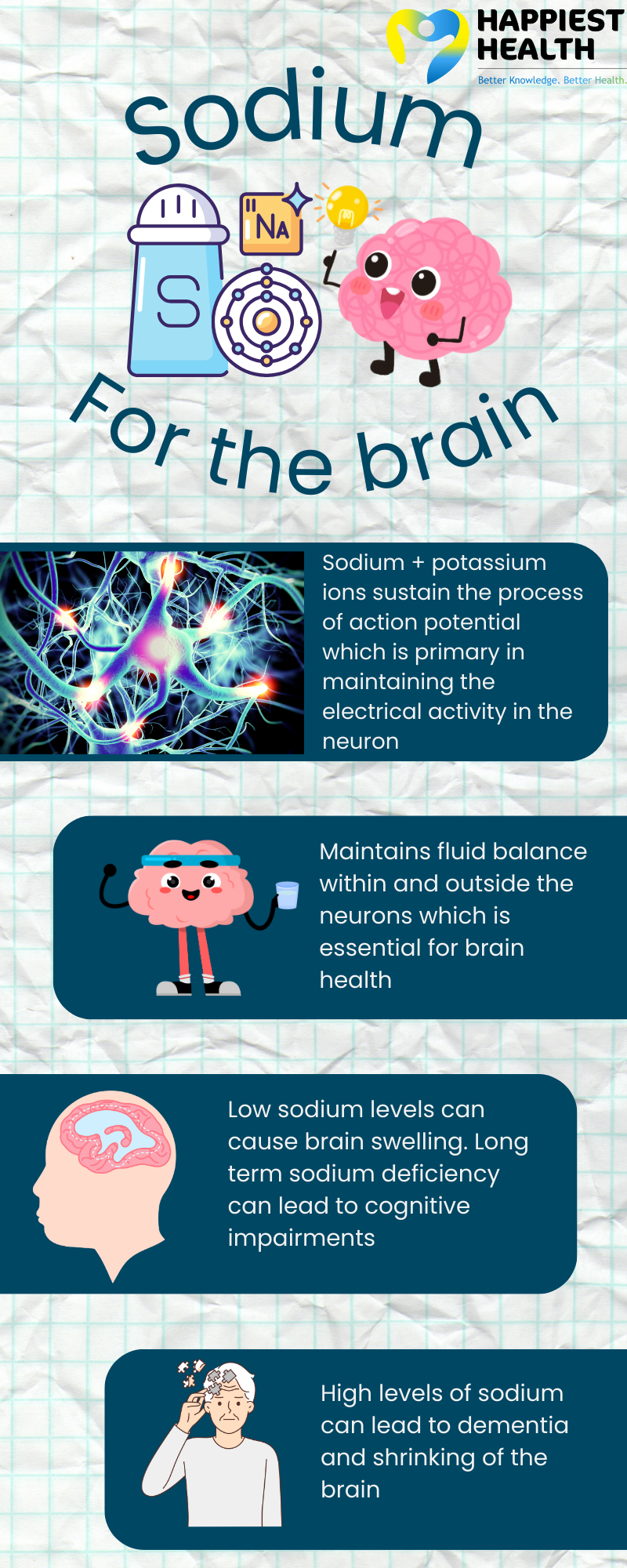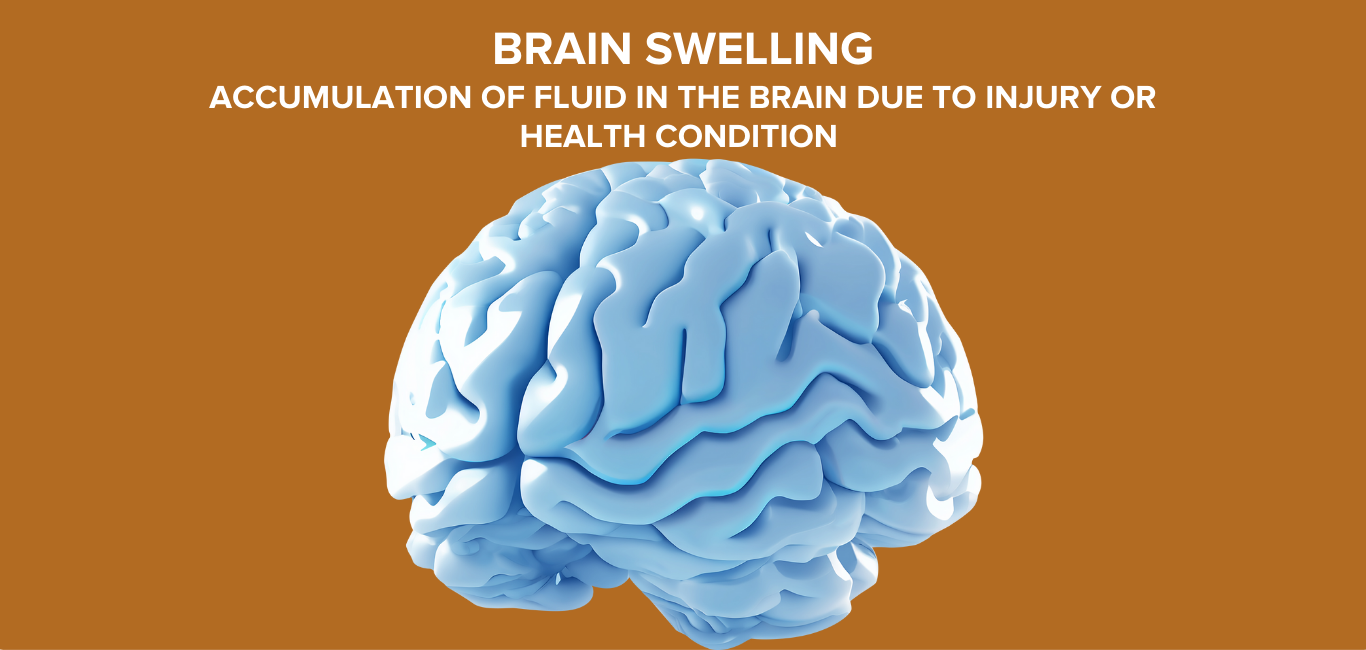Salt reigns as the flavour enhancer of the food we eat and goes beyond being a humble seasoning agent. Sodium, a vital component of salt, maintains the fluid balance and muscle tone in the body. Sodium levels dictate blood pressure, kidney and heart health.
Did you know this soft, silvery-white alkaline metal is also crucial to brain health?
“Sodium is an extracellular ion, that is, it is found outside the nerve cell,” Dr Rohit Pai, neurologist, KMC Hospital, Mangaluru, tells Happiest Health. He explains that sodium, along with another ion, potassium, maintains the electrical charge across the membrane of the neuron and, by extension, the steady electrical state of the brain. “When there is excessive activity due to this disrupted potential, it could show up as seizures,” he says.
Sodium concentration determines the fluid balance within the brain, and based on which way the scale tips, it can cause the brain to shrink or swell. Both extremely high concentrations (hypernatremia) and low concentrations (hyponatremia) of sodium can permanently change the neuron and its functioning.
Dr Pai explains that the brain does not receive enough sodium in hyponatremia as the kidney excessively excretes this metal. It leads to a condition called cerebral salt wasting. This phenomenon also occurs when certain brain infections alter the production of antidiuretic hormones.
Reduced sodium levels in the brain can cause generalised weakness or decreased appetite. However, long-term deficiency of sodium can cause coma, even leading to seizures.
But what happens in the reverse case? Dr Pai says that too much sodium presents as delirium and states of confusion and can also cause seizures. Some studies have also found that increased sodium in the brain could result in cognitive impairment and symptoms of dementia. Hence, maintaining optimum sodium levels with adequate water intake becomes imperative in ensuring good brain health.
This infographic summarises the role of sodium in the brain to function healthily.


















